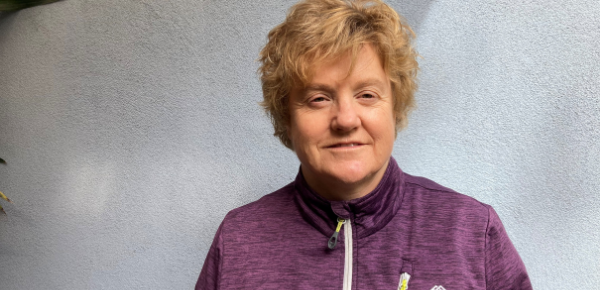
Caroline’s cancer diagnosis shows why it’s so important that BreastScreen Victoria offers a safe and inclusive service to our LGBTI+ clients.
As a pioneer in gender, sexuality and sport studies, Professor Caroline Symons knows that accessing health services can be harder for LGBTI+ people.
“Some people have experiences of medical personnel who haven’t been well trained in those sensitivities,” she says.
“There’s a bit of a distrust there.”
To address these barriers, BreastScreen Victoria is committed to building an inclusive and trusted environment for LGBTI+ clients. More staff training, better representation, and holding dedicated Rainbow screening sessions are just some of the initiatives we’ve implemented over the years.
For Caroline, breast screening became part of her regular routine when she turned 50.
“I always made sure I went. I would get anxious, but I did positive self-talk to get myself through. And the staff at Essendon BreastScreen always made me feel as comfortable as possible.”
In 2018, Caroline’s regular breast screen picked up an anomaly. Further tests confirmed Stage 1 breast cancer, the earliest stage of invasive breast cancer.
“It was found early and treated with a lumpectomy and radiotherapy because there was no evidence of any spread to the lymph nodes.
“My prognosis was around 95% that I’d be fully okay. But if I hadn’t had the screen or if I’d put it off, it would have been bigger and more difficult to treat.”
Caroline’s advice to fellow members of the LGBTI+ community is to first talk to a doctor they trust. “I think that’s the best place to get an education,” she says.
“With the screening itself, concentrate on the benefits and know you’re in good hands. It doesn’t last long, it’s managed by wonderful staff and it’s free.”
Caroline considers herself extremely lucky. She’s in great health, has regular checks and is enjoying semi-retirement.
“I was so fortunate,” she says. “That’s why it’s so important to do your screening. There was no way I would have found that cancer on my own.”